Escape Pod 748: Flash Fiction Contest Winners 2020
Flash Fiction Contest Winners 2020
Our stories this week are the winners of the contest, as chosen by you: our listeners and readers. All four stories are Escape Pod originals. Out of 224 stories, the top four stories were:
“Butterfly” by Drew Czernik, narrated by Hollis Monroe
“In Roaring She Shall Rise” by Rajiv Moté, narrated by Katherine Inskip
“Death Poems of the Folded Ones” by Carol Scheina, narrated by S. Kay Nash
“The Day the Sun Went Out” by Hannah Whiteoak, narrated by Tina Connolly
Now, get ready to explore new worlds of space, time, and relationships, because it’s storytime.
Butterfly
by Drew Czernik
Josie was eight when she built her first time machine.
She called me into her bedroom, where she stood happily over the remains of an old alarm clock. It was covered with glue and butterfly stickers and was, somehow, ticking backwards.
“Do you like it?” she asked.
“It’s great sweetie! … What is it?”
Josie smiled, big and bright in the way that only she smiles. “It’s a time machine, daddy. I’m gonna see the dinosaurs.”
“Oh. Are you going to bring one back?”
She shook her head. “I can’t do that, because of the butterflies.”
“Butterflies?”
She nodded. “If you go back in time and change something it also changes the butterflies. Then, when you come back, everything is different. So, I can’t bring a dinosaur back. But I can see them!”
“Makes sense,” I said. Although, truthfully, it didn’t. It took some Googling before I realized that despite taking the Butterfly Effect a bit too literally, Josie already understood time and space better than I did.
I don’t know how old Josie was when she built her last time machine.
I found her on the porch tonight. I’d just taken an Advil and was leaving for a walk, hoping to loosen a knot in my back that had appeared after an afternoon spent chopping wood. It was Josie, but not my Josie. My Josie is eighteen and about to start her physics scholarship out West. She’s going to change the world. The Josie I saw tonight already has.
“Hi Dad,” she said. She was older. Much older. There was grey in her hair and lines around her eyes. Her smile though, that hadn’t changed a bit. “I did it.”
She’s gone now. After a few minutes her watch beeped and then she just wasn’t there. Before she left, I asked if she’d seen the dinosaurs yet. She grinned. “I did, Dad. They’re awesome.”
I laughed, then winced as sparks shot from my back through my shoulder. “And what about the butterflies? You keeping them safe?”
Her grin faded. She whispered something to herself.
“What was that?”
Her watch beeped. “Nothing, Dad,” she said. “I love you.” Then she disappeared.
I could almost believe I imagined it all, if not for the envelope. She handed it to me just before I asked about the dinosaurs. Inside was a note and a small white pill.
The note was short and direct. It read, “Take this. Please. I miss you.”
It’s late. I’ve got the pill beside me and the feeling that I’m running out of time. The pain from my back has spread all through my chest now. I don’t think Advil will fix this.
The thing is, every time I reach for the pill all I can think about are butterflies, and
how they change everything. I don’t know what that pill does to Josie’s world, but I
do know I’m a big damn butterfly.
Take this. Please. I miss you.
I want to sweetie, I really do.
In Roaring She Shall Rise
by Rajiv Moté
Blue-green sunlight filtered through seawater down to the city streets: orthogonal strips of resurgent coral running between hulks of sunken buildings. The ocean would always reclaim the land, eventually.
Carrying chunks of barracuda in a billowing plastic sack, the octopus drifted along a crowded avenue. She kept an uncharacteristically deferential pallor, tamping down the aggressive red flush from her fight. Managing emotion was necessary in society.
When the octopuses first came to the city, they learned by manipulating slides, levers, and knobs. They embraced it down to their self-edited RNA, growing strong enough to open doors against the water’s press, sprouting tentacles at the tips of their arms to better manipulate the tools they found. Their brains grew, as did their numbers. The ubiquity of walls gave the octopuses a strong territorial sense, but they became social for defense against a parade of invaders.
She’d lost the jacket she’d draped around herself against predators, but as the barracuda thrashed with leather in its jaws, she gutted it with the shard she always carried, and efficiently collected its meat.
An alley took her into a square, with rows of barnacle-encrusted cars. She pulled open a door, nudged back the crabs that tumbled out, and tossed them some shredded barracuda. She continued her circuit until the fish was gone. A humdrum social duty, but not without benefits. She snatched a crab on her way up.
Her lair was in a tall building, a perch above the crowd. A hole in the glass allowed ingress from the open water. Glass fascinated her. Her eyes told her one thing, but touch told another. It was like impassible water. She’d collected treasures made of the stuff: forms with unreachable baubles within, containers of various sizes, wicked razor shards. One of these last, gripped with her suckers, had eviscerated the barracuda. But her favorite was a container with flowing contours: a hollow bulb that narrowed to a fluted, open stalk. It was clear as clean water. She could climb inside completely, or let her arms extend out the stalk, to swim. This, she practiced for the novelty of having a shell, but soon with a tantalizing sense of purpose: adventure and escape.
The morning currents rolled her in her glass shell. She ducked under riptides, dodging the pull, riding the push. The tide finally rolled her onto sand, high enough so her arms held against the suck of the receding water. The hot grit stung her skin, but she could adapt. Her arms stoppered the opening, keeping her mantle bathed in seawater. Tottering at first, she engaged the strength of her arms to hold the bulb upright. Away from the water she wandered, exploring the arid, empty landscape.
The octopus crept over a rise, where sand yielded to concrete. Through the clearwater glass, she saw wonders. Her skin flushed scarlet with excited possibility. A new city rose from the unclaimed land, bathed in the brilliant light of the surface.
Towers of luminous glass shimmered like barracuda.
Death Poems of the Folded Ones
by Carol Scheina
The computer instructions began simple.
Mountain fold.
Maviel creased the paper replica of the alien in half, imagining it alive, with flat lines of muscles contracting into new folds. The replica lay on the red earth like a human-length tortilla, yellow because Maviel liked that color. No one knew the alien’s actual skin coloring in life.
The computer gave the next step.
Square base.
Five million years ago, this moon was alive with folding creatures. Now all that was left were the crumbling remains of their two-dimensional impressions. Maviel knelt beside one of thousands, the rocks hurting her knees, the dry air light in her lungs. She focused on the form before her.
Petal fold. Repeat four times.
“Can I fold too, Mama?”
Maviel’s teeth clenched at the sound. Oskar always managed to interrupt her work at the worst times. She considered sending him back to his tutor, but then guilt flooded her heart. She’d dragged him light-years from home to this moon, and the young boy had to leave his friends behind. Perhaps folding together would help him understand why she’d devoted her life to studying these aliens.
She pulled out another flat alien replica—purple, Oskar’s favorite color—and patted the red earth beside her. He knelt and began. When his soft hands hesitated, her cracked ones guided.
“Mama, can’t the computer’s sims do this instead?”
Maviel smiled. “It makes me feel closer to them when I do the folding myself.”
Crimp. Swivel fold. Crimp.
She watched her son’s furrowed brow. He’d grown so much this past year.
“Why did they fold themselves?” Oskar asked.
“That was how they spoke.”
Unfold. Refold.
“What’s it saying now?”
She hesitated, then decided to speak the truth. “It’s a death poem. They folded their last words, then imprinted their bodies into the mud.”
“Why?”
“It was their tradition.”
“Can you tell me the poem?”
Maviel turned on the computer’s translation feature. It began to speak the words with each fold. She knew them all by heart.
Power. Strength.
The folding instructions increased in complexity. Maviel paused the program several times so they could figure out each fold. Even with years of practice, she struggled with some moves. Once she creased her yellow replica, she helped Oskar.
Unexpected changes. Fear.
With a final pull upward, they finished.
Alone.
Oskar frowned. “That’s sad.”
The death poems always were, Maviel knew.
Oskar placed his folded replica alongside his mother’s. “Now they’re not alone anymore,” he said, his small face proud and happy.
Maviel eyed the two folded replicas. Funny how she’d never noticed how well they fit together. What if the death poem wasn’t a solo act? Could two aliens create a different word?
She entered combinations into the computer, which analyzed a potential translation for the new, combined form: Together.
“What if it really means ‘family?’” Oskar asked.
“That sounds perfect,” Maviel said.
He slipped his small hand into hers, easy as making a mountain fold. She squeezed back.
The Day the Sun Went Out
by Hannah Whiteoak
When the sun went out, we were sitting around the table, waiting for Mum to serve up a bean stew. It was one of her down days, so she was moving as slow as a dripping tap, hauling up the ladle like it was the heaviest thing in the world. But you couldn’t complain, because then she might throw it to the ground and smash the pot of stew and stomp off to bed.
She wailed when the sun went out. And she did throw the ladle down — it clattered across the floor — but she didn’t stomp off anywhere. We all sat perfectly still, in total darkness, waiting for the light to return.
Eventually, Dad said, “I’d better go fix that.”
“Wait,” I said, as his chair scraped on the concrete. “I’m coming too.”
#
I’d been nagging Dad for years to let me see the sun room. I thought it’d be bright and warm, full of the sunlight that the orb hanging from the domed blue sky doled out to us each day. There were never enough light hours to read as much as I wanted.
Dad climbed down first, then held the torch steady for me. The metal rungs of the ladder numbed my feet. At the bottom of the shaft, the air felt damp. The floor was gritty with dried beans and grains of rice. Empty sacks heaped around the edges of the room.
“Hold this,” said Dad, wrapping my hands around the torch. “Point it there.”
The beam lit up a big white box. Dad swung open the front panel and inside were a lot of thick, thread-like things.
“Hmm,” he said. “The last turbine’s gone.”
“Is that bad?”
“I’ll switch us to backup power.” He disappeared into the dark and returned, rolling a huge metal cylinder.
“What’s that?”
“Gas. Hold steady while I connect it.”
The white box started to hum. Light shone down the shaft.
“You fixed it!”
He didn’t return my smile. “Come on,” he said. “Let’s go home.”
#
When I climbed out of the shaft, Mum was still sitting at the table, head in her hands.
“The sun’s back on!” I ran over to hug her.
Her fingers wound into my hair, pressing my cheek into her holey blue cardigan. In the hydroponic system behind her, the beans we germinated last week sent baby shoots toward the sun.
“It’s over,” she said to Dad. “Isn’t it?”
He slammed shut the trapdoor, locked it, and hung the key back around his neck.
His eyes drifted to the sky, which shone glossy blue in the flickering sunlight, and
nodded slowly.
I wriggled free and grinned at Mum. “We fixed it!”
Her lip wobbled, which meant she might cry. “How long?”
Dad dolloped stew into my bowl. “Eat up.”
Host Commentary
by Darusha Wehm
Rajiv Moté has this to say about his story: A couple of years ago, Atlas Obscura had a call for submissions for “climate change monsters” during a time a friend and I were swapping articles on the amazing attributes of cephalopods. If any species would thrive in times of global change, I figured it would be the octopus, with its advanced intelligence and adaptive RNA expression. The resulting draft was too long for Atlas Obscura, but it felt like a good premise for an Escape Pod flash story. Octopuses are incredible creatures. We need more stories about them.
Carol Scheina has this to say about her story: For my daughter’s recent birthday, my family decided to decorate the house with paper cranes, and my son was my main helper. He and I would spend about an hour every evening folding origami paper cranes. This story came to life in those moments as I folded cranes over and over with my son.
Hannah Whiteoak’s story is loosely based on a post-apocalyptic novel she is currently writing.
Our closing quotation this week is from William Cullen Bryant, who said:
“Weep not that the world changes – did it keep a stable, changeless state, it were cause indeed to weep.”
Thanks for joining us, and have fun.
About the Authors
Hannah Whiteoak
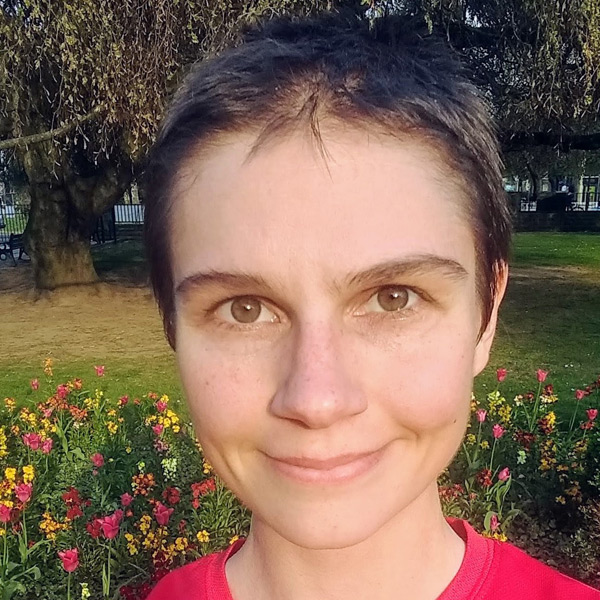
Hannah Whiteoak is a flash fiction and short story writer from Sheffield, England. Her work has appeared in Ellipsis Zine issues Four and Six, as well as online at Banshee Lit, Asymmetry Fiction, and on the Weird Christmas blog.
Rajiv Moté

Rajiv Moté is a speculative fiction writer living in Chicago with his wife, daughter, and puppy. His stories make appearances in Cast of Wonders, Diabolical Plots, Dream of Shadows, Metaphorosis, McSweeney’s Internet Tendency, Truancy, and others, and he has served as a slush-reading Badger for Shimmer Magazine. During the day, he gathers source material by masquerading as a software engineering manager. He scrapes off excess words on Twitter at @RajivMote, and occasionally realizes he should put some effort into rajivmote.com.
Drew Czernik
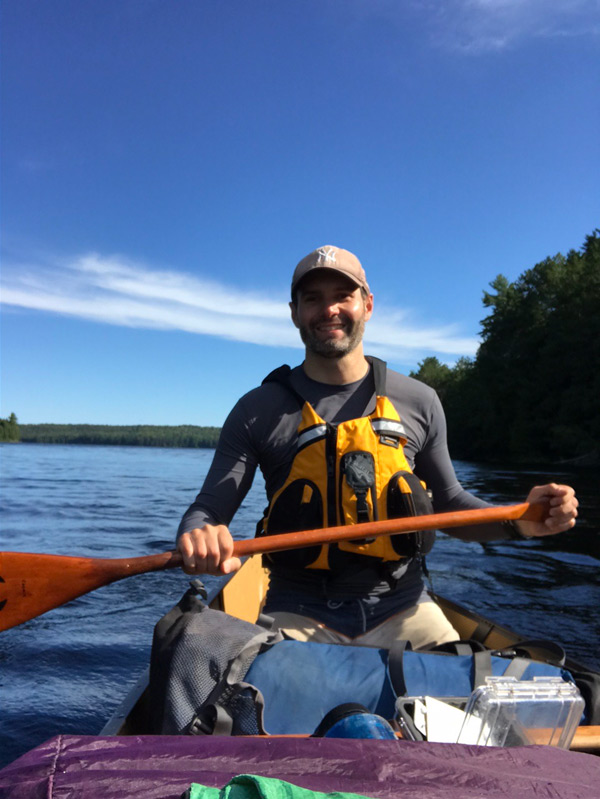
Drew lives in Ottawa, Canada. This is his second time being included in an Escape Artists flash fiction podcast, having been among the winners of a previous Pseudopod contest. When he’s not working on his next contest entry Drew can be found chasing, or being chased by, his kids all over Ottawa. In his spare time he also writes about his travels through Canada’s Algonquin Park and is always looking forward to his next canoe trip.
Carol Scheina
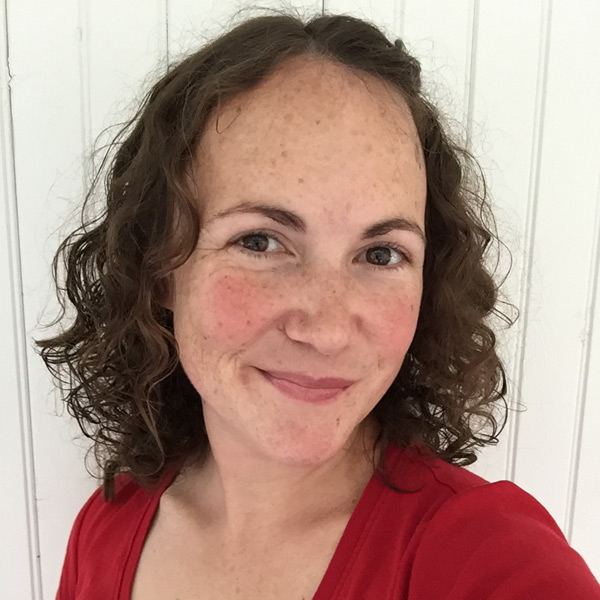
Carol Scheina is a deaf speculative fiction author who also works as a technical editor in a traffic-jammed city. Her work has appeared in Daily Science Fiction and Luna Station Quarterly.
About the Narrators
Hollis Monroe
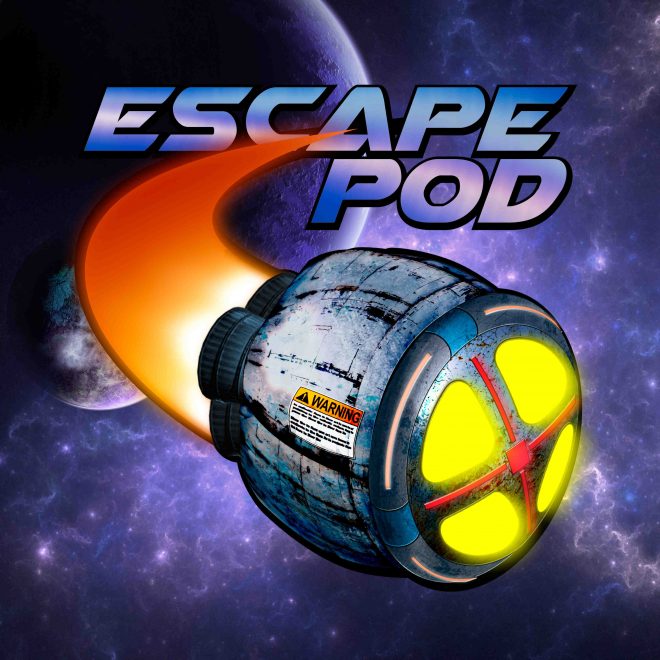
Hollis Monroe is an award winning radio producer, opera and jazz singer and Shakespearean. He served as executive producer and also read for Iowa Public Radio’s “The Book Club” for many years and is an active voice actor, emcee and singer.
Katherine Inskip
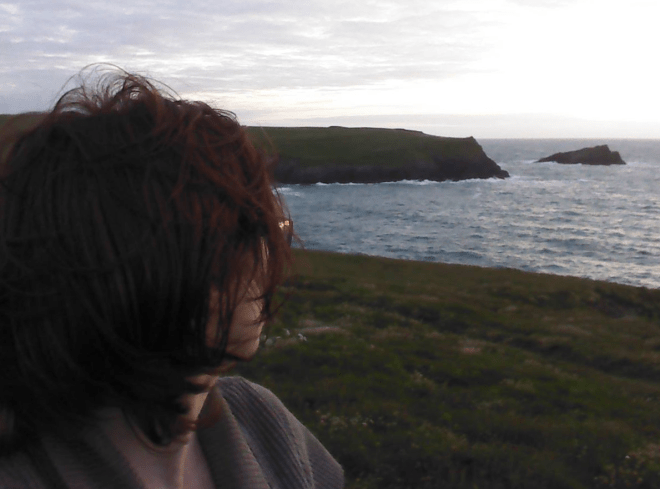
Katherine Inskip is assistant editor for Cast of Wonders. She teaches astrophysics for a living and spends her spare time populating the universe with worlds of her own. You can find more of her stories at Motherboard, Cast of Wonders, the Dunesteef and Luna Station Quarterly, and forthcoming from Abyss & Apex.
S. Kay Nash

S. Kay Nash is a writer, editor, and occasional narrator. Raised by a cabal of university professors, anthropologists, and irritated librarians, she holds two degrees as magical wards to protect her from being hauled back into the ivory tower. Her short fiction has appeared in several anthologies including Road Kill: Texas Horror by Texas writers, volume 2.
She lives in Texas with a Mad Scientist and a peaceful contingent of cats and dogs. You can find her on Twitter @Gnashchick.
Tina Connolly
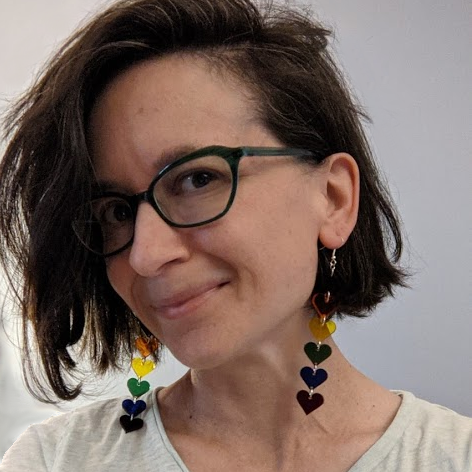
Tina Connolly is the author of the Ironskin and Seriously Wicked series, and the collection On the Eyeball Floor. She has been a finalist for the Hugo, Nebula, Norton, and World Fantasy awards. She co-hosts Escape Pod, narrates for Beneath Ceaseless Skies and all four Escape Artists podcasts, and runs Toasted Cake. Find her at tinaconnolly.com.


